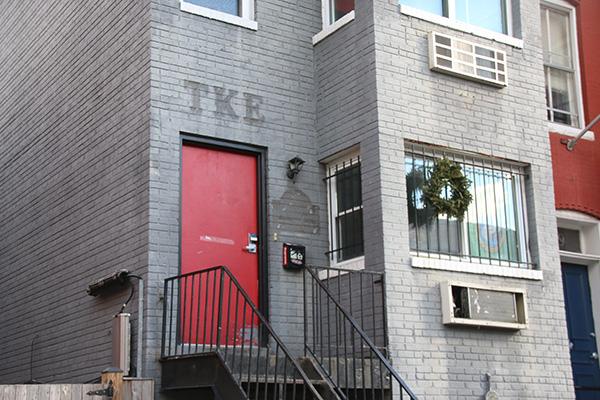Two Greek chapters were recently charged with hazing, according to the latest round of updates to GW’s sanctions website, bringing the number of organizations that have been charged with that type of misconduct to seven since 2013.
Delta Gamma and Kappa Kappa Gamma were both charged with hazing last month, which comes after Greek leaders called for more details on the website and a new process for sanctioning student organizations.
Tau Kappa Epsilon’s national organization also closed its GW chapter last week, making it the second fraternity to leave campus in about a year.
In 2014, a total of 17 chapters were sanctioned for various violations and 10 chapters are currently on disciplinary or social probation, according to GW’s list of student organizations facing sanctions.
GW officials have repeatedly refused to provide information about the cases, and University spokesman Kurtis Hiatt declined to give details about Delta Gamma’s misconduct, dating back to November.
Delta Gamma lost its University townhouse after the sorority hosted unregistered social events with alcohol, supplied alcohol to minors and hazed members, according to the online list. The group received a deferred revocation of its chapter status until May 31, 2016.
Tau Kappa Epsilon’s chapter was shut down after an investigation found “conduct and patterns of behavior inconsistent with the ideals, ambitions and expectations” of both the University and TKE, the international organization’s chief information officer, Alex Baker, said in an email.
He added that the fraternity “looks forward” to returning to the area in the future, but declined to comment further on the chapter’s closing.
Hank Nuwer, a hazing prevention expert, said sanctioning Greek-letter organizations after hazing can help crack down on bad behavior across campus.
“Sanctioning the offenders, especially repeat offenders, gives a sort of university stamp-of-approval on the many Greek fraternity and sorority chapters that operate in blameless fashion,” he said. “From the university and international fraternity perspective, getting rid of a bad chapter reduces liability and keeps skyrocketing insurance rates for houses from flying upward, ever upward.”
Center for Student Engagement Director Tim Miller declined to comment on whether he thinks there is an overall trend concerning Greek organization behavior.
“We prefer to work collaboratively with national organizations anytime there is a concern with a chapter and share as much as is appropriate about situations with the governing councils,” Miller said.

Miller said the University is working with the housing office to determine which chapter will move into Delta Gamma’s former townhouse, and students who had been living in the townhouse were moved to other buildings on campus. He added that Tau Kappa Epsilon’s townhouse, across from the Smith Center, was owned by the fraternity.
Delta Gamma’s national president, Stacia Rudge Skoog, said the organization is “committed to working with the chapter to return them to good standing on campus and with the fraternity.”
At least five other sororities and fraternities have lost their University townhouses since 2011.
In December, Beta Theta Pi and Delta Tau Delta were both placed on social probation and given written warnings after holding unregistered social events with alcohol. Kappa Kappa Gamma was put on disciplinary probation that same month for hazing and underage drinking.
Elizabeth Bailey, national vice president of Kappa Kappa Gamma, said the national organization is working with GW and the local chapter “to use this time to focus on values-based education.”
“While we expect all members to adhere to the high standards of behavior advocated by Kappa Kappa Gamma, sometimes individuals make inappropriate choices that do not meet our standards,” Bailey said.
In November, Phi Sigma Kappa was also put on social probation and disciplinary probation for holding an unregistered social event with alcohol, as well as for non-compliance, which the student code of conduct describes as not cooperating with University officials like University Police Department officers or other administrators in the Division of Student Affairs.
Pi Kappa Phi was put on social probation and disciplinary probation in the same month for disorderly conduct and underage drinking.
The presidents of Beta Theta Pi, Phi Sigma Kappa, Tau Kappa Epsilon and Delta Gamma did not return requests for comment. Presidents of Pi Kappa Phi, Delta Tau Delta and Kappa Kappa Gamma declined to comment.
Interfraternity Council President Tim Stackhouse declined to comment on the sanctions. Panhellenic Association President Mollie Bowman did not return requests for comment.
GW shut down its Alpha Epsilon Pi chapter last January, though some students who were in the chapter continued operating because the international organization, which governs Alpha Epsilon Pi chapters, still recognized the members. The organization announced last week that the chapter was officially suspended, saying “any individuals or group of individuals that are currently representing themselves as Alpha Epsilon Pi are not authorized to do so.”
Brandon Lee contributed reporting.







